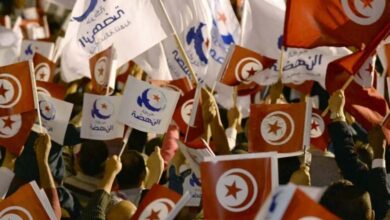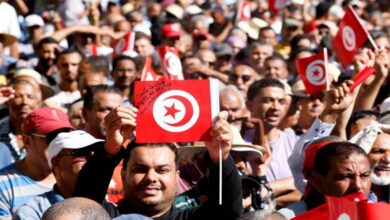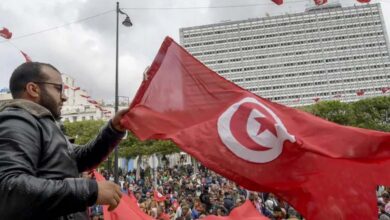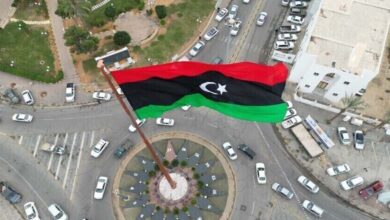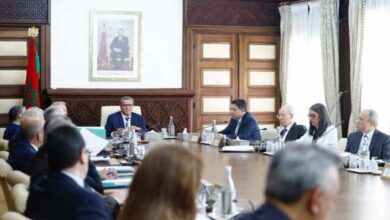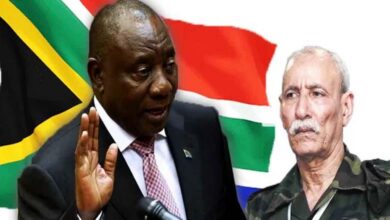Tunisia Places President of Ennahdha’s Shura Council under House Arrest
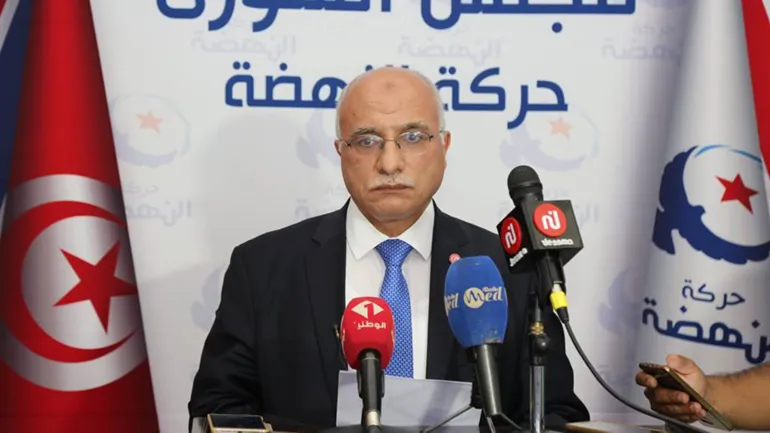
Abdelkrim Harouni, the President of Ennahdha’s Shura Council, has been placed under house arrest in the context of legal repercussions involving allegations of financial corruption and terrorist crimes against leaders in the Islamic movement, including Ennahdha leader Rached Ghannouchi, his deputy Ali Larayedh, and the head of their parliamentary bloc, dissolved parliament member Noureddine Bhiri.
The National Salvation Front, representing the opposition coalition in Tunisia, has reported that the authorities have placed Abdelkrim Harouni, the President of the Shura Council of the Islamic party, under house arrest.
This decision comes as the authorities investigate several political leaders from Ennahdha and the National Salvation Front, as well as businessmen, on suspicions of conspiring against state security, including Rached Ghannouchi, the head of the Islamic movement.
Harouni, who previously held the position of Minister of Transport in the first and second Troika governments, is the third highest-ranking official in the Islamic Ennahdha party to have his movements restricted, following the arrests of both Ghannouchi and Ali Larayedh earlier this year.
The opposition alliance stated in a release that this arbitrary decision is part of a broader pattern that includes the arrest of historical leaders of the Ennahda movement, the closure of all its offices, and threats against its cadres and activists. The National Salvation Front views this latest move as part of a campaign to undermine democracy and freedoms in Tunisia.
Ennahdha, in a statement posted on its social media accounts, condemned what it referred to as an arbitrary measure that precedes a remote meeting of the Shura Council scheduled for next Sunday, considering it an attempt to pressure the Shura Council, which is preparing for the party’s eleventh conference at the end of October.
The statement also affirmed that Ennahdha “denounces the placement of Mr. Karim Harouni, the President of the Shura Council, under house arrest and calls for the lifting of this oppressive and illegal measure that violates international treaties and the universal rights of movement and political and civil activity.” It considers that this measure confirms what it describes as “the authoritarian trend and the deliberate targeting of individual and public freedoms and the tightening of the noose on parties with the aim of undermining the entire democratic process and returning our country to the era of autocracy.”
At the same time, the current authorities are facing repercussions from what they call the “masked prison” on Harouni’s health situation, stating that “he is still undergoing precise medical treatments since the incident of the burning of the movement’s headquarters at the end of 2021.”
Many Tunisians view the measures taken by Tunisian President Kais Saied since July 25, 2021, and subsequent actions as a correction of the previous ruling system led by Ennahdha, as part of a revolutionary path and a significant turn towards holding that system accountable for financial and administrative corruption, as well as alleged terrorist crimes.
Tunisians also hold that system responsible for the worsening financial crisis, and many accuse it of serving its own and foreign agendas more than serving national interests, raising questions about international grants and loans totaling tens of billions of dollars.
This year, the police arrested prominent politicians who accuse Saied of carrying out a coup after freezing the work of the elected parliament in 2021 and moving toward governance through decrees before redrafting the constitution. Saied described those arrested as “terrorists, traitors, and criminals.”
Opposition parties condemned the arrests of their leaders and described the actions as politicized. Local and international human rights groups have called on the authorities to release the detainees.





